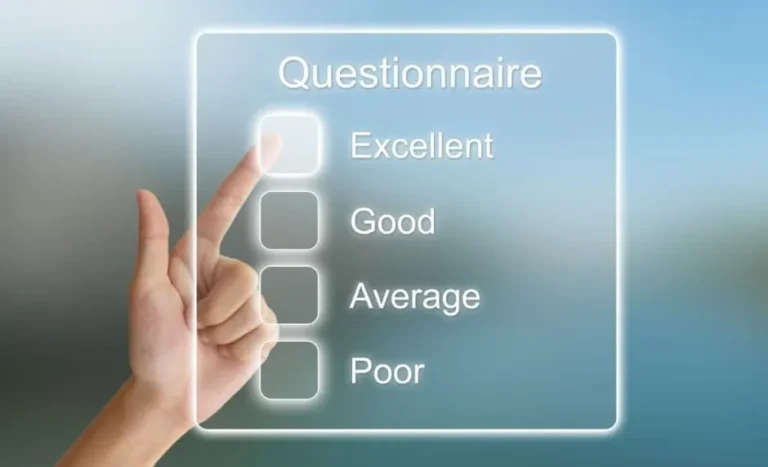Ensuring employee satisfaction is a continuous endeavor that demands ongoing attention and communication. It’s not a one-time task; rather, it entails consistently evaluating both soft and hard skills, staying connected with your employees, and addressing their needs and happiness within your organization.
Whether you’re engaging in recruitment interviews, evaluating performance, or designing training programs for your staff, our carefully selected skill survey questions act as your guiding tool, assisting you in making informed decisions and fostering strategic talent development.
By using these questions, you can gain insights into your team’s strengths and weaknesses, thereby enhancing the overall effectiveness of your organization.
Table of contents
- What are Skill Survey Questions?
- What are the Benefits of Skill Survey Questions?
- What Questions Should the Skills Survey Ask? | Soft Skills
- What Questions Should the Skills Survey Ask? | Hard Skills
- How Do I Create a Skill Survey?
- Skill Survey Questions with Sample Questionnaire
- FAQs
- Conclusion
- References
- Recommendations
What are Skill Survey Questions?
Skill survey questions are like tests that ask about how good someone is at different things needed for a job. These questions aim to uncover both hard skills, which are technical or job-specific abilities, and soft skills, which are interpersonal or transferrable qualities.
Skill surveys are commonly used in recruitment processes, performance evaluations, training needs assessments, and career development planning. They help employers or managers gauge the competency levels of individuals and make informed decisions regarding hiring, training, or advancement.
What are the Benefits of Skill Survey Questions?
- Assessment of Competency: Skill survey questions provide a structured way to evaluate an individual’s proficiency across various skills relevant to a role or task.
- Identification of Strengths and Weaknesses: By answering skill survey questions, individuals and employers can identify areas where the individual excels and areas that may require improvement or further development.
- Informed Decision Making: Skill survey results help employers and managers make informed decisions regarding hiring, training, performance evaluations, and career development planning. They can tailor their actions based on the identified skill levels and needs of individuals.
- Alignment with Job Requirements: Skill survey questions can be tailored to align with specific job requirements, ensuring that candidates possess the necessary skills and qualities for the role.
- Objective Evaluation: Skill survey questions provide a standardized method for evaluating skills, reducing bias and subjectivity in assessments. This allows for a more objective evaluation process.
- Improvement of Team Dynamics: Understanding the skill sets of team members through skill surveys can facilitate better team composition and collaboration. It helps in leveraging each individual’s strengths and fostering a balanced team environment.
- Enhanced Training Programs: Skill survey results can inform the design of training programs by highlighting areas where employees may need additional support or development. This ensures that training efforts are targeted and effective.
- Career Development Planning: Skill surveys can aid in creating personalized career development plans for employees by identifying areas for growth and advancement. This encourages continuous learning and professional growth within the organization.
Also, see: 100+ Frequently Asked Questions About Immigration with Answers
What Questions Should the Skills Survey Ask? | Soft Skills
- How would you rate your communication skills on a scale of 1 to 10?
- Can you describe a time when you effectively resolved a conflict within a team?
- How comfortable are you with giving and receiving feedback?
- Describe a situation where you had to demonstrate empathy towards a colleague or customer.
- Rate your ability to actively listen and understand others’ perspectives.
- How do you handle stressful situations in the workplace?
- Describe a time when you successfully collaborated with others to achieve a common goal.
- Rate your ability to adapt to changes in work environments or procedures.
- How do you prioritize tasks when faced with multiple deadlines?
- Describe a situation where you demonstrated leadership skills, even without holding a formal leadership role.
- Rate your ability to effectively delegate tasks to others.
- How do you handle constructive criticism from colleagues or supervisors?
- Describe a time when you had to persuade others to accept your viewpoint.
- Rate your ability to build and maintain positive relationships with colleagues.
- How do you contribute to fostering a positive work environment?
- Describe a situation where you had to take initiative without being asked.
- Rate your ability to remain calm and composed under pressure.
- How do you handle disagreements or differing opinions within a team?
- Describe a time when you had to compromise to reach a mutually beneficial solution.
- Rate your ability to effectively communicate complex ideas to diverse audiences.
- How do you handle unexpected changes or setbacks in a project?
- Describe a situation where you provided support or assistance to a struggling team member.
- Rate your ability to effectively manage time and prioritize tasks.
- How do you ensure that everyone’s opinions are heard and respected in group discussions?
- Describe a time when you had to resolve a misunderstanding or miscommunication within a team.
- Rate your ability to remain open-minded when receiving feedback or suggestions from others.
- How do you handle conflicts between team members?
- Describe a situation where you had to motivate others to achieve a common goal.
- Rate your ability to maintain confidentiality in sensitive situations.
- How do you handle competing priorities and demands on your time?
- Describe a time when you had to negotiate with a difficult stakeholder or client.
- Rate your ability to effectively manage your emotions in challenging situations.
- How do you ensure that everyone feels included and valued in team discussions?
- Describe a situation where you had to resolve a disagreement between colleagues.
- Rate your ability to remain flexible and adaptable in changing work environments.
- How do you handle feedback that you disagree with or find unfair?
- Describe a time when you had to mediate a conflict between two team members.
- Rate your ability to inspire and motivate others to achieve their goals.
- How do you handle situations where you have to work with people who have different communication styles?
- Describe a situation where you had to take on additional responsibilities at work.
- Rate your ability to effectively communicate with people from diverse backgrounds.
- How do you handle situations where you have to work with people who have different work styles?
- Describe a time when you had to make a difficult decision in a team setting.
- Rate your ability to remain patient and calm when dealing with challenging situations.
- How do you handle situations where you have to work with people who have different opinions than yours?
- Describe a time when you had to work under tight deadlines.
- Rate your ability to stay organized and focused on tasks.
- How do you handle situations where you have to work with people who have different cultural backgrounds?
- Describe a situation where you had to take responsibility for a mistake or oversight.
- Rate your ability to effectively manage conflict and find mutually acceptable solutions.
Read: 170+ Frequently Asked Questions About Christianity With Answers
What Questions Should the Skills Survey Ask? | Hard Skills
- What programming languages are you proficient in?
- How comfortable are you with using data analysis software?
- Can you demonstrate your proficiency in using spreadsheets?
- Are you experienced in using project management tools?
- Have you received formal training in database management?
- How skilled are you in using graphic design software?
- Do you have experience with CAD software?
- Have you worked with CRM systems before?
- Are you proficient in using statistical analysis software?
- Can you provide examples of your proficiency in using specialized equipment?
- Have you completed any certifications related to your hard skills?
- How experienced are you in using programming frameworks?
- Can you demonstrate your proficiency in using digital marketing tools?
- Have you developed mobile applications before?
- Are you familiar with network administration tasks?
- How skilled are you in using accounting software?
- Can you provide examples of your proficiency in using laboratory equipment?
- Have you worked with automation tools in manufacturing?
- Are you experienced in using geographic information systems (GIS)?
- How comfortable are you with using audio/video editing software?
- Can you provide examples of your proficiency in using electronic medical record systems?
- Have you received training in using cloud computing platforms?
- How skilled are you in using customer relationship management (CRM) software?
- Are you proficient in using enterprise resource planning (ERP) systems?
- Can you demonstrate your proficiency in using cybersecurity tools?
- Have you completed any training in using industrial automation systems?
- How comfortable are you with using machine learning algorithms?
- Can you provide examples of your proficiency in using data visualization tools?
- Are you experienced in using electronic design automation (EDA) software?
- How skilled are you in using content management systems (CMS)?
- Can you demonstrate your proficiency in using digital publishing tools?
- Have you completed any training in using robotic process automation (RPA) software?
- Are you proficient in using inventory management software?
- How comfortable are you with using simulation software?
- Can you provide examples of your proficiency in using computer-aided design (CAD) software?
- Have you received training in using supply chain management (SCM) software?
- How skilled are you in using e-commerce platforms?
- Can you demonstrate your proficiency in using customer support ticketing systems?
- Are you experienced in using quality management software?
- How comfortable are you with using data warehousing tools?
- Can you provide examples of your proficiency in using geographic information systems (GIS)?
- Have you completed any training in using inventory optimization software?
- Are you proficient in using inventory forecasting tools?
- How skilled are you in using document management systems?
- Can you demonstrate your proficiency in using project scheduling software?
- Have you received training in using business intelligence (BI) tools?
- How comfortable are you with using enterprise content management (ECM) systems?
- Can you provide examples of your proficiency in using enterprise resource planning (ERP) systems?
- Are you experienced in using point-of-sale (POS) systems?
- How skilled are you in using customer relationship management (CRM) platforms?
How Do I Create a Skill Survey?
Creating a skill survey involves several steps to ensure it effectively assesses individuals’ proficiency and aptitude in various areas. Here’s a step-by-step guide to help you create a skill survey:
- Understand why you’re doing the skill survey: Figure out if it’s for hiring, seeing how well people are doing at their job, planning training, or helping with career growth.
- Know what skills you’re looking at: Decide which specific skills you want to check. Think about both job-specific skills and personal qualities like being good with people.
- Decide how you’ll ask the questions: Choose if you want to ask multiple-choice questions, questions where people write their answers, or a mix of both. Make sure it matches what you want to find out.
- Write the questions: Make sure the questions are easy to understand and get straight to the point about the skills you’re interested in. They should fit the job or situation you’re asking about and cover different levels of skill.
- Try out the survey first: Test the survey with a small group first to see if there are any problems or things that need fixing. Ask them for their thoughts on whether the questions make sense.
- Make any needed changes: Based on the feedback you get, tweak the survey to make it better. Make sure the final version is clear and ready to go out.
- Figure out how you’ll give out the survey: Decide if you’ll send it out online, through email, in person, or in other ways. Choose what works best for the people you’re asking.
- Give out the survey: Send the survey to the people you want to answer it, like job applicants or employees. Tell them what it’s for and how to do it.
- Look at the answers: Once you have the responses, look at them to see what skills people have and where they might need help. Look for any patterns or trends.
- Take action: Use what you learn from the survey to make choices about hiring, training, how well people are doing, or helping with career growth. Do things to fix any issues or help people get better at what they do.
- Keep making things better: Every so often, take a look at the survey again to see if it’s still working well. Ask for feedback from the people who use it to help make it even better.
Skill Survey Questions with Sample Questionnaire
Below are samples of skill survey questionnaire featuring both soft and hard skill questions:
FAQs
Skill survey questions are important because they help employers or managers gauge the competency levels of individuals and make informed decisions regarding hiring, training, or advancement.
Skill survey questions assess both hard skills, such as technical proficiency and job-specific knowledge, and soft skills, such as communication, teamwork, and leadership abilities. They may also cover other skills relevant to a specific role or industry.
Skill survey questions should be structured in a clear and concise manner, addressing specific skills and competencies relevant to the role or context. They can be multiple-choice, open-ended, or a combination of both.
Skill survey questions can be administered through various methods, including online surveys, paper-based questionnaires, interviews, or focus groups.
Best practices for using skill survey questions include ensuring clarity and relevance, using a variety of question types, piloting the survey before full implementation, and regularly reviewing and updating the questions to reflect changing needs and priorities.
Conclusion
Skill survey questions are really important. They help figure out how good people are at different things needed for a job, whether it’s hard or soft skills.
Whether it’s hiring new people, checking how well someone is doing, or planning training sessions, these questions help make smart decisions.





